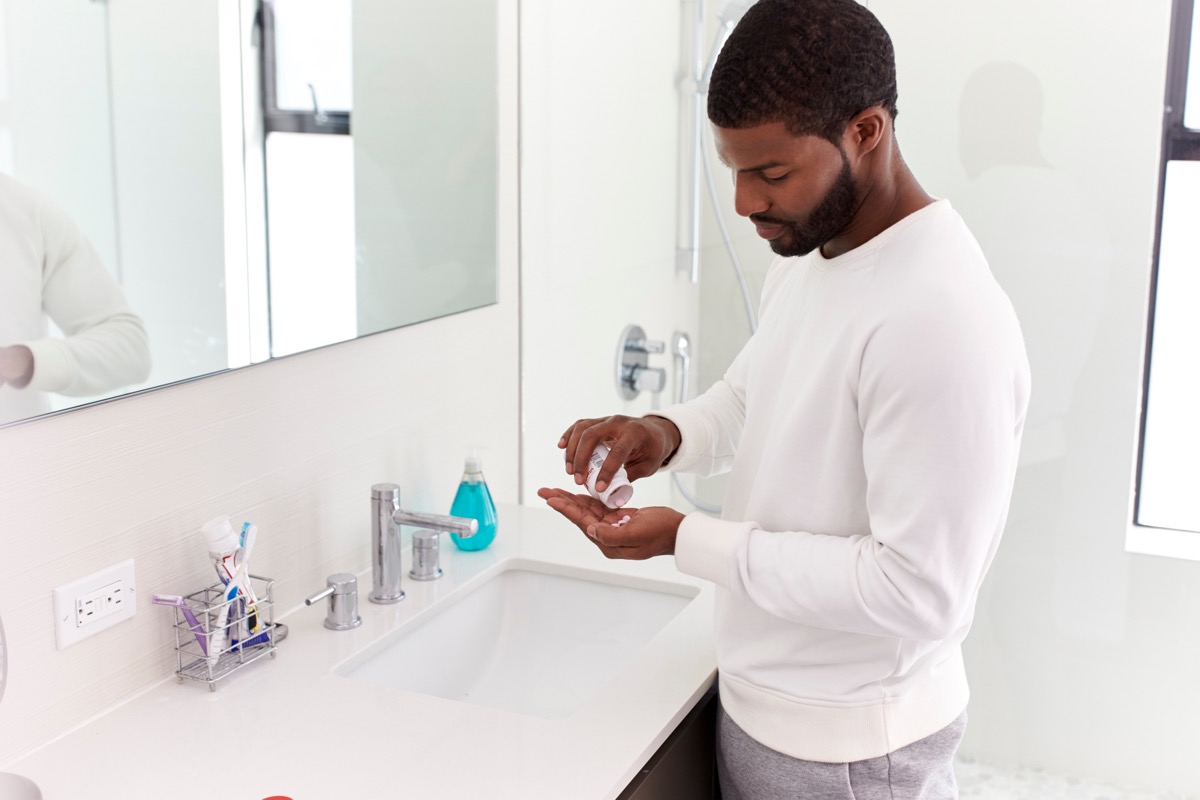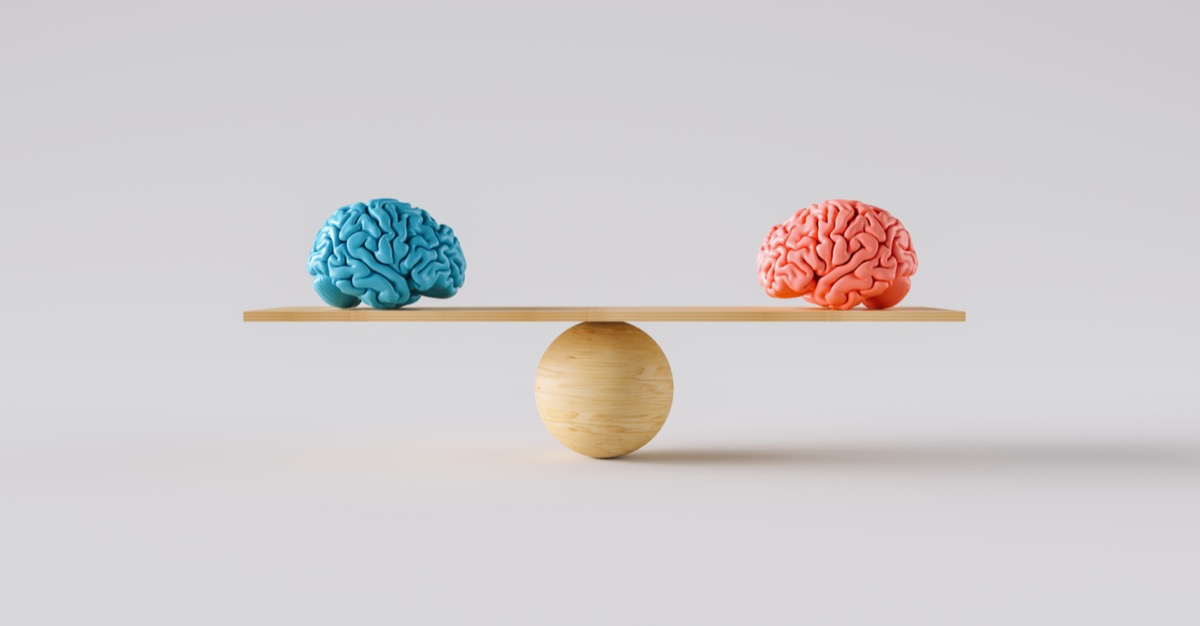This Vitamin Could Help With Anxiety
A pounding heart, stomachaches, trembling, sweating, difficulty falling asleep—these are just a few of the ways anxiety can rear its ugly head. If you consistently find yourself struggling with any of these symptoms, you’re certainly not alone. Anxiety disorders are the most common type of mental illness in the U.S., taking a toll on over 19 percent of adults and almost 32 percent of teenagers, according to the Anxiety & Depression Association of America (ADAA).
As the stigma around mental illnesses diminishes, more and more people are able to find the help they need—and new research is being conducted on treatments that may prove effective against anxiety. Read on to find out which vitamin supplement a new study says can help alleviate your symptoms, and what you need to know if you decide to try it out.
READ THIS NEXT: If You’re Using Any of These Supplements, Call a Doctor, FDA Warns.

Prescribed medications, such as benzodiazepines and antidepressants, are commonly used to reduce the symptoms of anxiety. These medications are generally safe and effective; however, when used over a longer period of time, patients may begin to develop a tolerance and require a higher dosage. Psychotherapy, or “talk therapy,” is also a popular treatment option, either independently or used jointly with medication.
Plenty of other treatment options exist, however. Both the scientific community and healthcare professionals are giving an increasing amount of attention to the effectiveness of complementary or alternative therapies for anxiety, including natural approaches such as getting regular exercise, limiting your intake of caffeine and alcohol, practicing relaxation or breathing techniques, and taking various herbs or supplements.

A July 2022 study published in Human Psychopharmacology: Clinical and Experimental found that high-dose vitamin B6 supplements may be effective at reducing feelings of both anxiety and depression in adults. A total of 478 people ages 18-58 with self-reported anxiety and depression were recruited to take part in the study. Participants received daily doses of vitamin B6, vitamin B12, or a placebo over the course of one month. At the conclusion of the experiment, participants who received vitamin B-6 tablets reported feeling less anxious and depressed. (The effects of vitamin B12 were found to be minimal.)
While these findings are promising, the study’s lead author, David Field, PhD, noted that the effects from vitamin B6 were “quite small compared to what you would expect from medication.” However, for anxiety-sufferers who prefer to avoid prescription medication, taking vitamin B6 could be an effective alternative.

According to a manuscript published in Psychiatric Clinics of North America in 2009, symptoms of anxiety and other mood disorders can be caused by a “disruption in the balance of activity in the emotional centers of the brain.” Specifically, people with anxiety tend to have a decreased count of something called inhibitory neurons compared to excitatory neurons–a problem that extra vitamin B6 helps to fix.
“Vitamin B6 helps the body produce a specific chemical messenger that inhibits impulses in the brain, and our study links this calming effect with reduced anxiety among the participants,” Field explained in a statement. That “chemical messenger” is known as gamma-aminobutyric acid (GABA), and researchers confirmed that increased levels of it were found in study participants who were given the vitamin B6 tablets.
For more health news sent directly to your inbox, sign up for our daily newsletter.

Vitamin B6 is naturally present in foods like poultry, types of fish, fortified cereals, chickpeas, bananas, and dark leafy greens. But even with a diet filled with these foods, you likely would not be able to replicate the decreases in anxiety seen in the study.
During the experiment, participants took 100 milligrams of B6 per day. This is more than 50 times more than the recommended daily dosage approved by the FDA, which is set at 1.7 milligrams. For reference, one 6-ounce filet of salmon provides about 1.6 milligrams of vitamin B6. Based on this information, Fields concluded that “[vitamin B6] supplements would be necessary to have a positive effect on mood.”
" Conservative News Daily does not always share or support the views and opinions expressed here; they are just those of the writer."

Now loading...